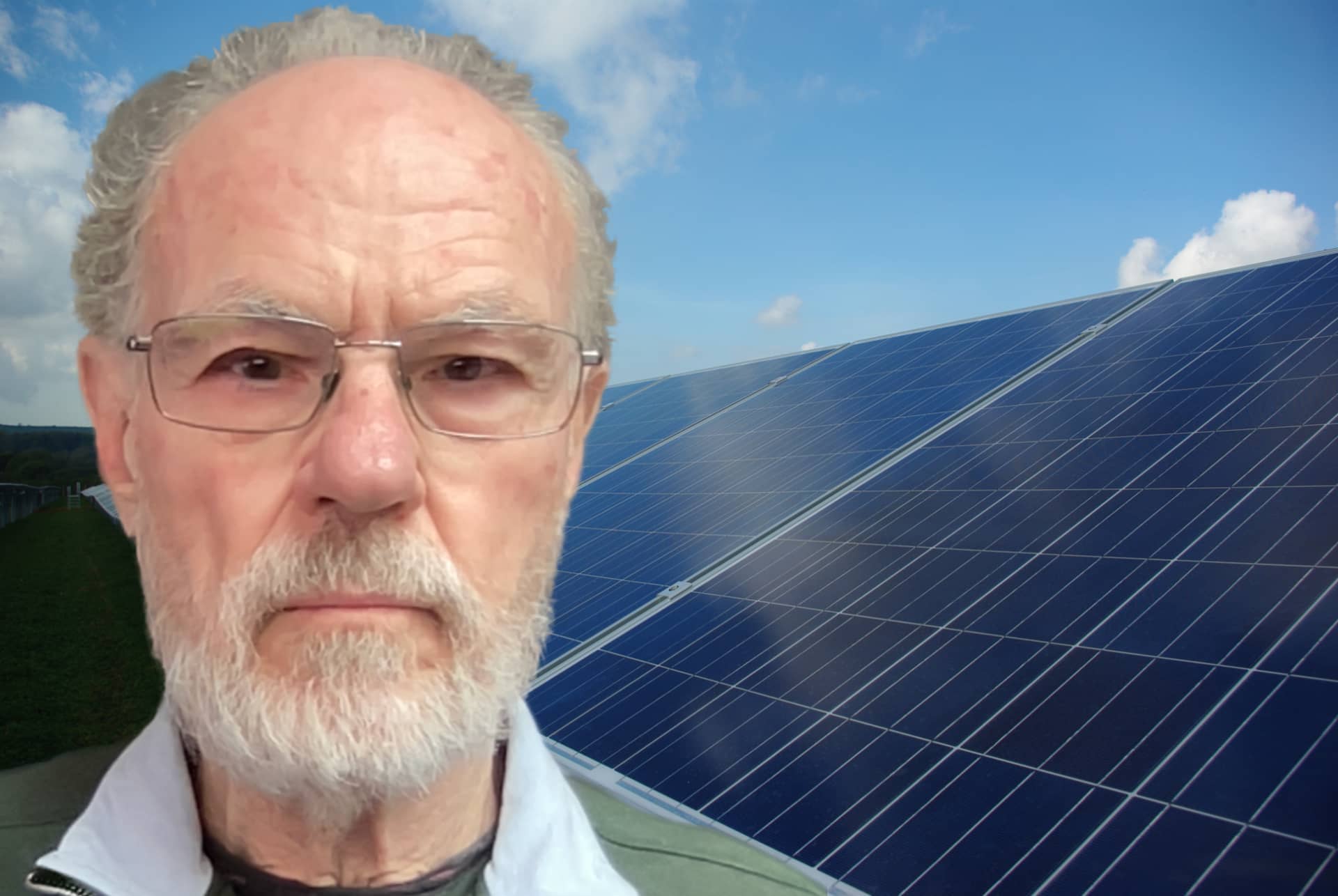Colin Palmer, director of Wight Community Energy, responds to claims made by Isle of Wight Conservative MP, Bob Seely (that it was, “huge naivety just thinking that renewables are going to solve all our problems”). When Seely was speaking this week about the Russian invasion of Ukraine and rising energy costs. Ed
If Bob had been writing in the late 90s, many would have shared his view that renewables “were not going to solve all our problems”. Only the naive or green optimists foresaw a different future. Back then renewables were indeed a minor contributor to our energy supply, and required subsidy to make them financially viable. But times change.
Over the last ten years the cost of solar panels has dropped by a factor of ten or more, onshore wind energy has become the lowest cost source of electricity, as was recognised by Kwasi Kwarteng in a recent Tweet.
Offshore wind cheaper than nuclear
Offshore wind (using blades manufactured on the Isle of Wight) costs less than any type of new fossil generation and a lot less than nuclear. Modern wind and solar projects can be built quickly, they are invulnerable to fuel price shocks and produce power at predictable, low prices.
Nuclear power stations take many years to permit and build and every experience to date indicates that they always over run on costs and are delivered many years late. For those reasons alone, they are not the answer to our dependency on Mr Putin’s fossil fuels.
Bob’s analysis of Germany is rather dated
These changes in the economics and deployment of renewable have happened quickly, which may be why Bob’s analysis of Germany is rather dated.
In 2021, only 28 per cent of their electricity came from coal and lignite compared to 41 per cent from renewable sources and 12 per cent from nuclear. But single numbers do not tell a story: we need to look at the trends.
Back in 2000, coal and lignite provided 55 per cent of electricity and nuclear 27 per cent. Renewables were a mere 10 per cent or so. Over time, German energy policy has driven dramatic changes in the proportions and those trends are accelerating as the costs of renewable sources become ever more competitive.
Denmark in comparison
Bob might also have mentioned Denmark. In 2000, 67 per cent of their electricity came from coal and gas. By 2021, that fraction had been reduced to 21 per cent, with 49 per cent coming from wind energy and 25 per cent from other renewables. Denmark has no nuclear power stations.
Denmark also reduced its electricity consumption by about 20 per cent even while the economy grew by 30 per cent. The cleanest energy is energy not used. Again, the result of consistent, effective energy policy.
UK’s lack of coherent energy policies
Here in the UK, we have indeed suffered from the lack of coherent energy policies from politicians of all stripes.
Margaret Thatcher set off the “dash for gas”, which weaned us off coal, but left us vulnerable to world market prices, even while we were a net exporter of gas. As North Sea gas production has declined we have become more reliant on Norway for some imported gas, but still export gas at times due in part to the lack of storage facilities, another failure of recent energy policy.
Unless we close our borders to trade, this will remain the case. Even if we were still net exporters of gas, consumer power prices would be no different since they are set by the global market.
Better insulate homes
We also need to be aware that around one third of our gas is used for domestic heating, a demand that could have been much reduced by investments in domestic energy efficiency and stricter building regulation.
Another failure of policy that has increased consumer’s vulnerability to price rises.
Keeping a cap on cost to consumers
In contrast to gas, the great majority of renewable energy is sold locally on fixed price contracts, so despite soaring short term prices, renewable generators are selling at unchanged prices, and helping to keep a cap on the costs to consumers.
These low cost, stable priced sources of power generation are a potent antidote to our over dependency on fossils fuels. When coupled with storage systems, smart grid and improvement to energy efficiency, they are the pragmatist’s way forward. Only the naive still see nuclear and fossil fuels as a major players in the future energy mix.
References
- De Statis: Gross electricity production in Germany
- Daily Mail: UK gas exports sourced from the North Sea and the Irish Sea double in a year… even as millions of British families face soaring bills amid record high wholesale gas prices
- Daily Express: ‘Worst insulated in Europe!’ UK homes ‘lagging behind’ EU as Brits face surging bills
- Dept for Business Energy and Industrial Strategy: UK Energy Trends, July to September 2021
- CEIC: United Kingdom Natural Gas: Exports
- Lazard: Levelized Cost of Energy
- The Economist: How governments spurred the rise of solar power





